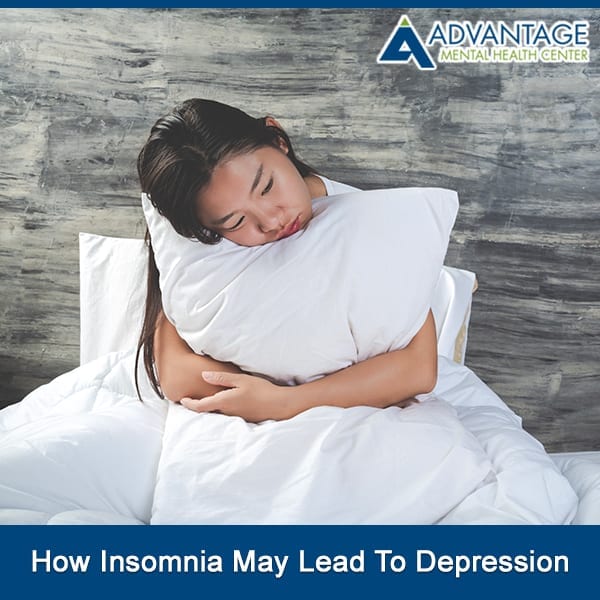Insomnia is considered a hallmark of depression today. In fact, about 80% of people who are depressed say they either have difficulty falling asleep or staying asleep. Only about 15% of people who feel depressed find themselves sleeping excessively.
Understanding the Relationship Between Insomnia and Feeling Depressed
Research shows that the inability to sleep may unleash a person’s depressed state. Michael Perlis, Ph.D., has conducted studies showing that the inability to sleep oftentimes precedes a person’s depressed state by approximately 5 weeks. Throughout the course of a new episode, sleep disorders tend to intensify too.
When a sleep disorder such as insomnia brings about depression it’s because of what happens within your nervous system. This is also why treating sleep disturbances is so important: It can forestall a depressant episode or keep it from becoming chronic.
This isn’t just because people who are depressed tend to wake up earlier and have less sleep. Their sleep cycle also becomes abnormal. People who feel depressed enter REM (rapid eye movement) sleep faster. This is the sleep that leads to vivid dreaming. When a depressed person quickly falls into this sleep it’s noticeably denser, intenser, and longer-lasting. It’s meant to help with emotional memory and thus regulate a person’s mood. When it’s intensely activated in the way that happens when someone is suffering from depression it results in the consolidation of negative memories. What this means is that someone who feels depressed becomes overly biased towards remembering bad things. This is because they aren’t as capable of discharging their negative feelings.
Making Sense of the Relationship
Insomnia results in a variety of symptoms including:
● Fatigue
● Loss of interest in activities
● Memory problems
● Irritability
● Concentration issues
● The inability to experience pleasure
● Loss of libido
● Weight loss
In short, it leads a person to become depressed. However, it’s important to understand that this depressed state is secondary to sleep issues. Nevertheless, it still disrupts the brain and acts as a stressor itself. This is why it leaves people even more vulnerable to becoming depressed, which is why it’s also a precipitator of depression.
Sleep disturbances also make it more difficult for people to deal with stressors in their home lives, while at work, or in social situations. This will oftentimes leave a person feeling as though things are out of control, which results in the feeling of helplessness. Such negative feelings will then spread. They may also dredge up negative memories and amplify negative thoughts. This creates the pessimistic cloud that depressed people find themselves dwelling under.
With this in mind, many of today’s doctors believe that disordered REM sleep is a hallmark of depression. They’ve seen this continue even when a person no longer feels depressed. This is why the person is much more likely to slip back into a depressed state again. While their insomnia may improve for a while, it’ll progressively grow worse again leaving them tail spinning into yet another depressing episode.
Treating the Relationship and Restoring Health
According to Perlis the best way to stop the entire collision course is with cognitive-behavioral treatment that’s aimed specifically at curbing insomnia. This may prevent a person from having to battle through a full-blown episode of depression. However, once the episode has begun it’s still possible to hasten recovery with this type of behavioral treatment. Therapy is also considered a great addition to other standard treatments here.
If you find yourself dealing with any of these issues, contact the Advantage Mental Health Center in Tampa Bay, FL today. They can help both your mind and your body get the rest you need.
Picture Credit: Freepik


